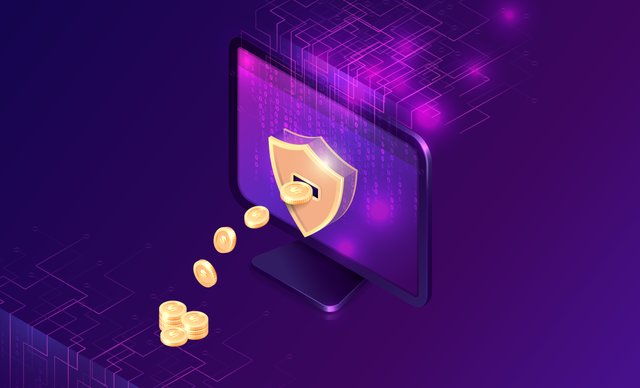The Importance Of Security In Decentralized Finance (Defi) And How It Is Achieved!
Decentralized finance (DeFi) has emerged as one of the most significant and innovative developments in the world of cryptocurrencies, with over US$53 billion locked across various DeFi apps, according to DeFiLlama. DeFi is a term referring to financial applications that operate on decentralized, permissionless blockchain networks. It is a rapidly growing industry that has the potential to transform traditional finance by eliminating intermediaries and allowing for greater access, transparency, and inclusivity.
The DeFi sector has seen humongous growth recently due to the numerous benefits it offers to businesses and users that make it favorable for entrepreneurs to build their ventures. In the absence of centralized authorities, DeFi protocols rely on complex smart contracts that can be prone to errors and hacking attempts. The security of DeFi is of utmost importance, as any vulnerability can lead to severe consequences, including the loss of funds and damage to the industry's reputation.
In this blog, we will discuss the importance of security in DeFi and how decentralized finance (DeFi) development services achieve it.

Why is Security Important in Decentralized Finance?
Decentralized finance offers several advantages, such as increased efficiency, lower costs, and greater accessibility. However, it also introduces new risks, such as smart contract vulnerabilities, loss of private keys, and governance failures.
As DeFi protocols rely on smart contracts, any errors or vulnerabilities in these contracts can lead to significant losses. Furthermore, as DeFi is relatively new, it lacks the regulatory oversight and legal protections of traditional finance, making it more vulnerable to fraud and hacking attempts.
The importance of security in DeFi cannot be overstated. It is essential to ensure the integrity and reliability of DeFi protocols, as any security breach can lead to loss of funds and harm to the industry's reputation. Additionally, the security of DeFi is critical for the industry's long-term sustainability and growth. DeFi will struggle to gain mainstream adoption without proper security measures, as users will not trust the system.
How is Security Achieved in DeFi?
To achieve security in DeFi, various measures and best practices must be employed. Here are some of the key ways security is achieved in DeFi by a prominent DeFi development services provider:
Smart Contract Audits
Smart contracts are at the heart of decentralized finance protocols, and any vulnerabilities or errors in these contracts can lead to significant losses. As such, conducting regular audits of smart contracts to identify and fix any security issues is critical. Smart contract audits are usually performed by a security team from a Decentralized finance development company, who review the code to ensure it is secure and operates as intended. Audits can be costly, but they are essential to maintaining the security and reliability of DeFi protocols.
Multi-Signature Wallets
Multi-signature wallets require multiple parties to sign off on a transaction before it can be executed. This is a valuable security measure, as it ensures no single individual can access and control funds. Multi-signature wallets are commonly used in decentralized finance protocols to prevent the loss or theft of funds.
Decentralized Governance
Decentralized governance is a key feature of DeFi protocols, as it allows for community-driven decision-making. However, decentralized governance can also introduce security risks, as it relies on the consensus of a large group of individuals. To mitigate these risks, providers of DeFi development services implement various mechanisms, such as voting thresholds and time locks, to ensure decisions are made securely and transparently.
Insurance
Insurance is an emerging trend in DeFi that provides a safety net for users in the event of a security breach or loss of funds. Insurance in DeFi is typically provided by third-party insurers, who offer coverage for specific risks, such as smart contract vulnerabilities or hacking attempts. Insurance can provide users with peace of mind, knowing their funds are protected in the event of a security breach.
User Education
User education is an often overlooked but crucial aspect of DeFi security. As DeFi is a relatively new industry, many users may not be familiar with the best practices and security measures needed to ensure the safety of their funds. As such, DeFi protocols must invest in user education, providing users with clear and concise information on how to use the platform securely. User education can help to prevent common mistakes, such as sharing private keys or falling for phishing scams. A prolific decentralized finance development company can help you devise a streamlined system to educate your customers.
Conclusion
Security is of utmost importance in the new-gen finance world, and Decentralized finance (DeFi) development service providers ensure to implementation of as many security protocols as possible. The use of smart contracts and the absence of centralized authorities introduce new security risks, which must be addressed through various measures and best practices. Smart contract audits, formal verification, multi-signature wallets, decentralized governance, insurance, and user education are all essential components of DeFi security. By implementing these measures, DeFi protocols can ensure the integrity and reliability of the platform, enabling the industry to grow and gain mainstream adoption. A skilled decentralized finance development services provider can supplement your efforts to make your DeFi venture secure to the core.